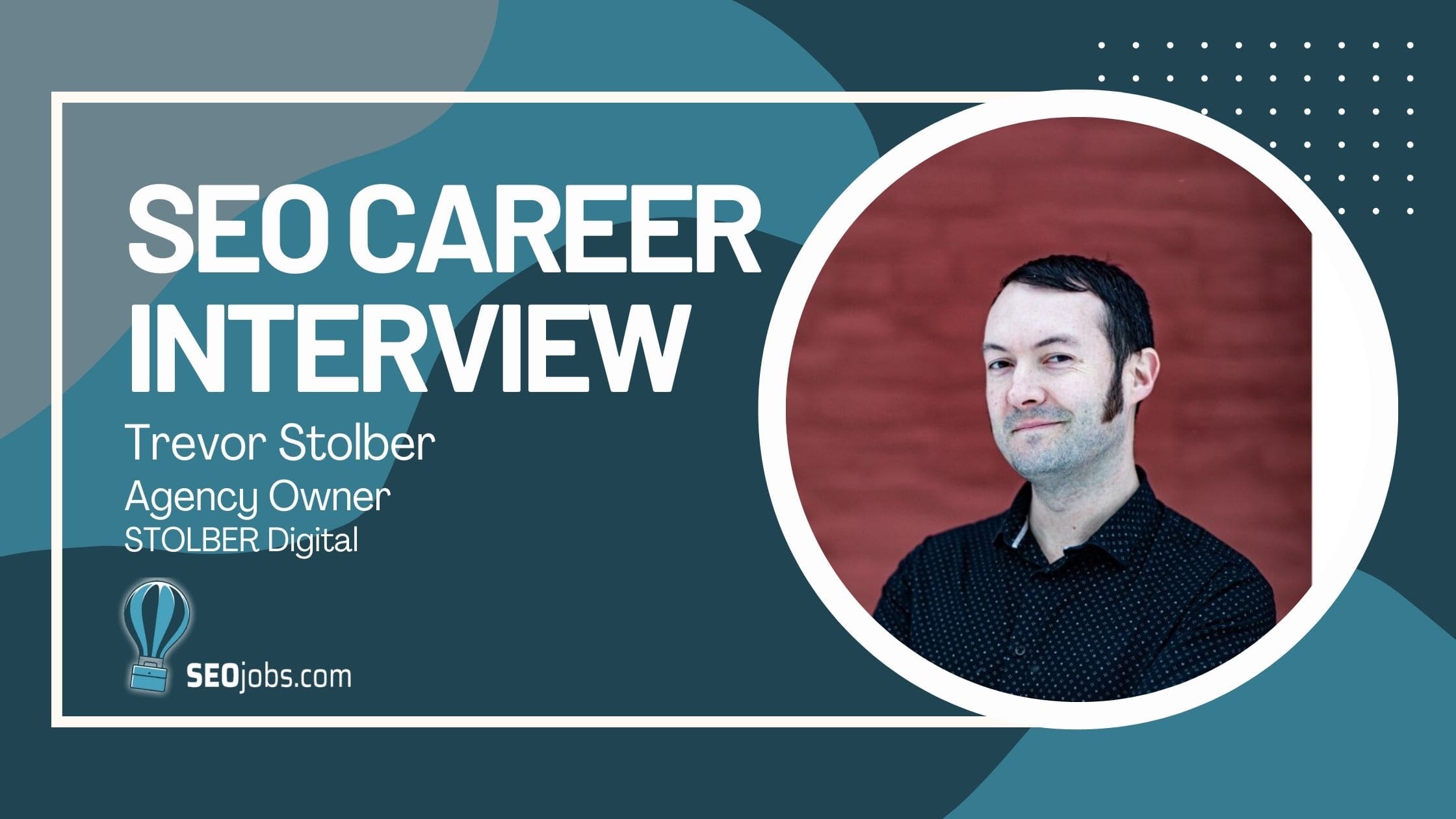Welcome to the SEO Careers interview series. This week, we’re excited to welcome Trevor Stolber, Owner of STOLBER Digital, which is a results driven Digital Marketing Agency which was founded 4 years ago. A true vet of the SEO industry for over 25 years, Trevor can be found on both Twitter & LinkedIn.
If you are interested in being featured in the SEO careers interview series, please submit your name and contact details on our contact page.
Many thanks to Trevor for joining us this week – let’s dig into our conversation!
Hi! 👋 We’re so glad to feature you on SEOjobs.com. Please introduce yourself to our site’s readers.
Hi, I’m Trevor Stolber, originally from the UK but based in Minnesota for the last 11 years or so. I have been in the SEO industry for 25 years – doing SEO 1 year before Google came on the scene – search was ugly back then – but SEO was a heck of a lot easier!
Please share with us your current SEO role and for what company you work for.
I run my digital marketing agency and my main role there is to grow the business and build out our team. My agency is 4 years old.
Can you share with us how you entered the SEO industry?
Pretty much everything I do is unconventional. I was working for an engineering firm back in the days when not everyone had a website (yes there really was a time) and was asked to make the company website. I reveled at the task and taught my self HTML – I produced a site that I was fairly happy with and was aghast at the fact that in Lycos.co.uk (this was the main search engine of choice pre Google when search was just really getting going) the site ranked in 6th position for the company name.
I thought how is this possible, and so I had to find out. The rest is as they say …. History. The obsession for SEO started right then and there.
My starting salary in ’97 was 7K GBP – about $8K USD.
How did you start to learn SEO? What are you currently doing to keep up with the ever changing SEO industry?
This is the best bit – really just by doing! After the engineering company site I made a site for a local car dealer and then started offering my services at a fee. I worked for a few local businesses and partnered with some web design companies.
I learnt a lot on some sites such as sitepoint.com and webmonkey.com – HTML Jalfrzi was another great resource. Then finding forums and building test sites – its always better to have something to play with.
In the early 2000s SEO competitions became quite popular and I placed in the top 10 for a couple and top 20 for a few of them. They were great – I kind of miss those days!
Lastly, I say 50% of being a good SEO is just keeping up to speed with the industry. What worked once won’t always work. What works in one industry won’t necessarily work in another. You have to be flexible and keep up to speed with the industry.
One other point – my acid test is always “does it stand to reason” – when ever you are going to do anything for”SEO purposes” ask your self – why would Google reward this – who does this help. If you can’t answer those questions and or it doesn’t stand to reason, you need to rethink what you are doing.
Can you share what factors are most important to you in an SEO career and why? When do you know it’s time for a new job? Do these same factors play a role?
Remote work and flexibility are a big plus, salary is nice, and healthcare is very important in the US.
I am a sort of accidental SEO fascinated by search technology.
I am not sure in job specific factors would really change my passion for it, but my background and introduction to it is different to most I expect.
What recommendations would you give to someone who is looking to join the SEO industry and get their first full-time SEO position?
Don’t follow SEO Gurus. Nobody (with maybe the exception of Brian Dean – backlinko.com) can rightfully claim to be an SEO guru.
Always question any advice and put it up to a logical test – does it stand to reason?
I am a huge Semrush fan. I can’t recommend that tool enough.
People;
- Nick LeRoy and SEO for lunch obviously (I wasn’t paid to say that)
- Daniel Foley Carter (Assertive Meida)
- Mark Williams (candor)
- Lily Ray (Amsive Digital)
- Ryan Stewart (Webris / The Blue Print / Coding is for Losers)
- Marie Haynes (MHC Consulting)
BONUS:
Understand the difference between causal and symptomatic.
Understand the difference between direct and indirect ranking factors.
Most of the misunderstanding and misinterpretation in the SEO field can be solved by having a handle on those two things.

